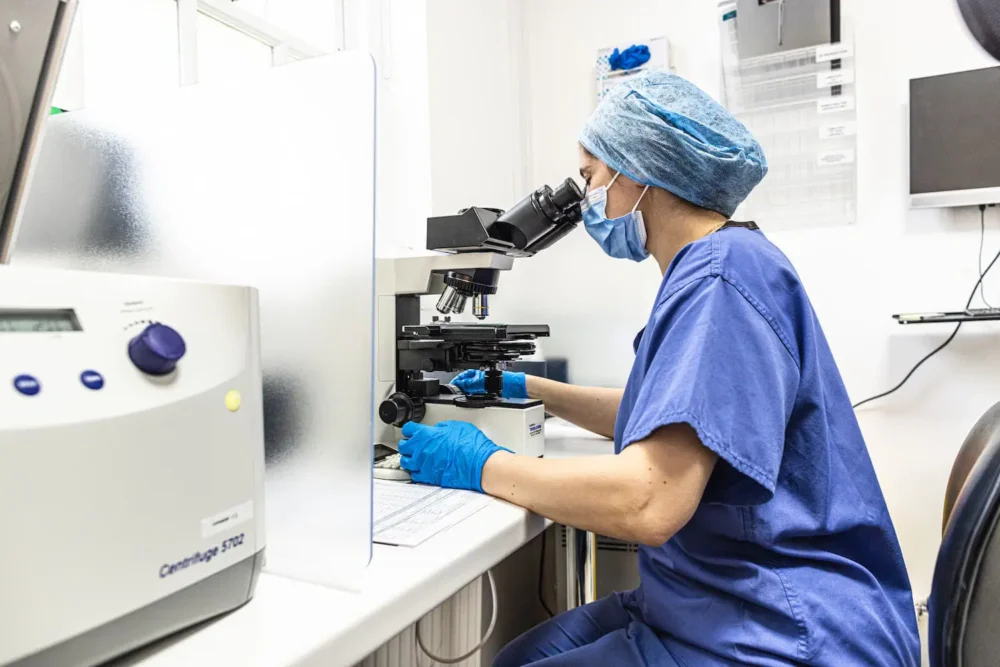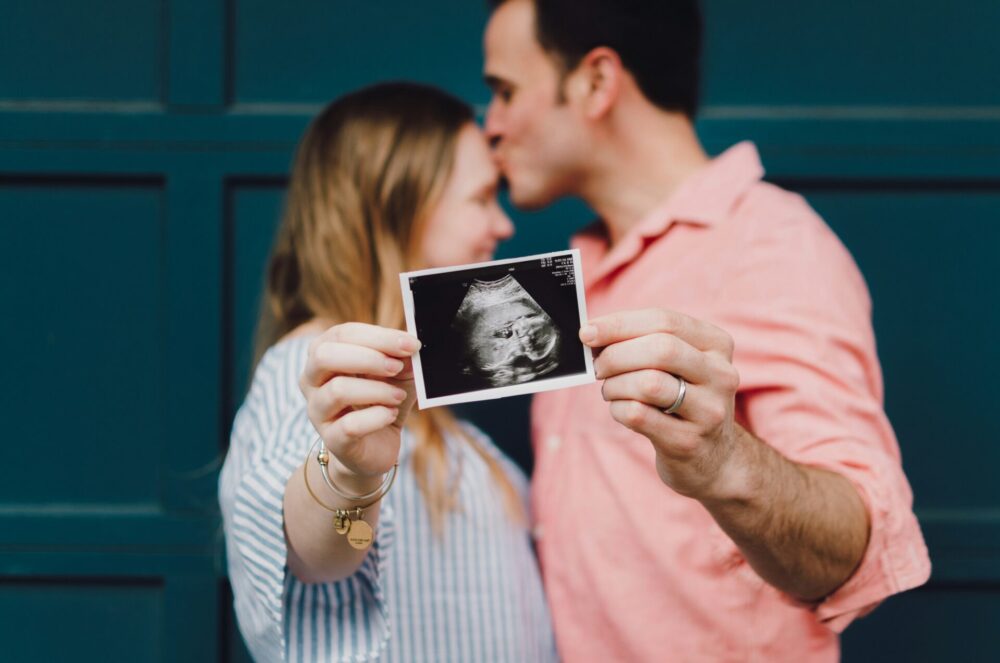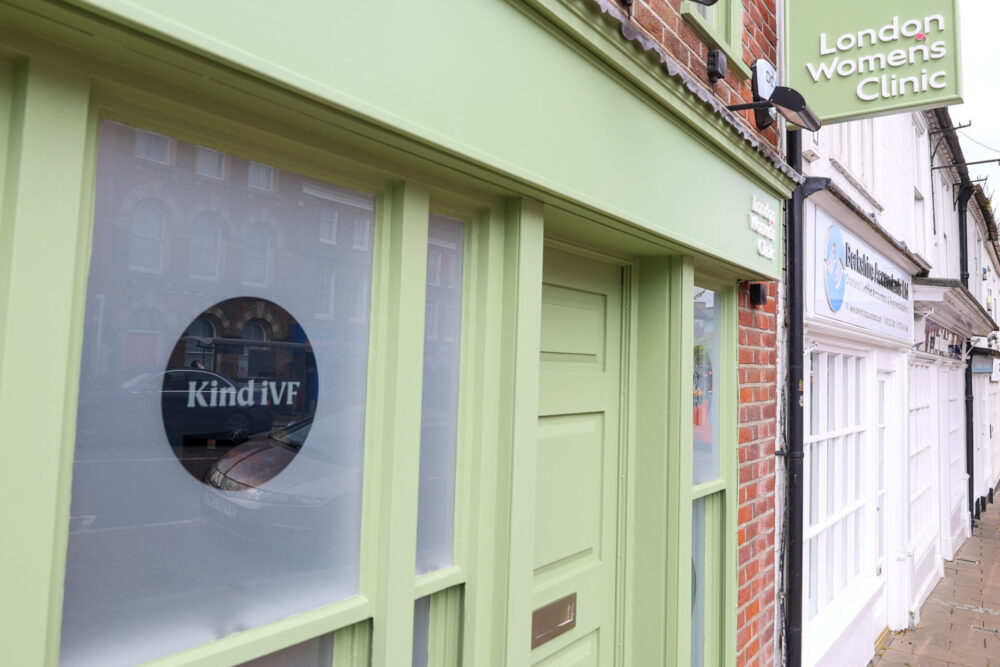BLOG
Navigating NHS IVF for Lesbian Couples: What You Need to Know
IVF, NHS
Share this:
All of our blog posts are written, edited, or produced by the Kind iVF Content Team. This is a collaboration between our expert writers, health editors, and the leading researchers and senior doctors at our clinics across the UK.
Key Takeaways
- Understanding NHS IVF eligibility criteria is crucial for lesbian couples seeking fertility treatment.
- Navigating the referral process is essential to secure a place in the NHS IVF queue.
- Preparing for the NHS IVF assessment involves key considerations specific to lesbian couples.
- Accessing sperm donation services through the NHS is an important step for most lesbian couples undergoing IVF.
- Prioritising emotional support and counselling is vital for the well-being of lesbian couples during the NHS IVF journey.
- Kind IVF provides several highly accessible, affordable options for IVF as alternatives to the NHS.
Understanding the NHS IVF Eligibility Criteria for Lesbian Couples
The National Health Service (NHS) in the United Kingdom provides access to in-vitro fertilisation (IVF) treatment for eligible individuals and couples, including lesbian couples. However, navigating the eligibility criteria can be a complex and often daunting process. As a lesbian couple, it is essential to understand the specific requirements and factors that may impact your eligibility for NHS IVF.
The NHS IVF eligibility criteria for lesbian couples are primarily based on factors such as age, body mass index (BMI), and medical history. Generally, the NHS will consider providing IVF treatment to lesbian couples where at least one partner is between the ages of 23 and 39, with a BMI within the healthy range (between 19 and 30). Additionally, both partners must be free from any underlying medical conditions that could significantly impact their fertility or the success of the IVF treatment.
It is important to note that the eligibility criteria may vary slightly across different NHS Clinical Commissioning Groups (CCGs), as they have the autonomy to set their own guidelines within the broader NHS framework. This means that the specific requirements for accessing NHS IVF services may differ depending on the region in which you reside. It is crucial to research and understand the local policies and guidelines to ensure that you meet the necessary criteria.
Navigating the Referral Process: Securing Your Place in the NHS IVF Queue
The referral process for NHS IVF can be a crucial step in securing your place in the treatment queue. As a lesbian couple, it is essential to familiarise yourself with the steps involved and develop strategies to ensure a smooth and timely referral.
The referral process typically begins with a consultation with your general practitioner (GP). During this initial appointment, your GP will assess your medical history, conduct any necessary tests, and determine whether you meet the eligibility criteria for NHS IVF. If you are deemed eligible, your GP will then refer you to the local NHS fertility clinic or specialist.
Once the referral has been made, it is important to follow up regularly with the NHS fertility clinic to ensure that your application is being processed in a timely manner. Delays in the referral process can significantly impact the time it takes to receive your first NHS IVF treatment cycle. To mitigate these delays, consider strategies such as maintaining clear communication with your GP and the fertility clinic, providing all necessary documentation promptly, and advocating for your case if you encounter any obstacles.
Additionally, it is worth exploring the possibility of self-referral, which may be an option in some regions. This can help to streamline the process and potentially reduce the waiting time for your first NHS IVF treatment cycle.
Preparing for the NHS IVF Assessment: Key Considerations for Lesbian Couples
The NHS IVF assessment process is a crucial step in determining the suitability and readiness of a couple for fertility treatment. For lesbian couples, this assessment may involve additional considerations, particularly in terms of legal and emotional aspects.
During the assessment, the NHS fertility team will typically evaluate the physical and emotional well-being of both partners, as well as any underlying medical conditions that may impact the success of the IVF treatment. They will also assess the couple’s understanding of the IVF process, the potential risks and outcomes, and their ability to cope with the emotional and psychological demands of the treatment.
For lesbian couples, the assessment may also include discussions around legal considerations, such as the process of establishing parental rights and responsibilities. It is essential to be prepared to address these issues and to seek legal advice if necessary, to ensure that your family’s rights and interests are protected throughout the IVF journey.
Additionally, the emotional support and counselling provided during the assessment process can be particularly valuable for lesbian couples. The NHS fertility team will likely explore the couple’s support network, their coping strategies, and any concerns or anxieties they may have about the IVF process. By addressing these emotional aspects, the team can help to ensure that the couple is well-equipped to navigate the challenges and uncertainties that may arise during their IVF journey.
Accessing Sperm Donation Services through the NHS for Lesbian Couples
One of the key considerations for cisgender lesbian couples seeking NHS IVF is the availability and accessibility of sperm donation services. The NHS does provide sperm donation services, but the process can vary depending on the region and the specific fertility clinic.
Lesbian couples may have the option to access sperm donation services through the NHS, either by using a known donor or by utilising the clinic’s sperm bank. The NHS sperm bank typically sources sperm from anonymous donors who have undergone extensive screening and testing to ensure the safety and quality of the samples.
When navigating the sperm donation process through the NHS, it is essential to understand the legal and administrative requirements, such as the need for both partners to be named on the child’s birth certificate. Additionally, the couple may need to consider the implications of using an anonymous donor, including any potential future contact or information-sharing with the child.
It is important to note that the availability and accessibility of sperm donation services within the NHS may vary across different regions. Some NHS fertility clinics may have longer waiting lists or more limited options for sperm donors. In such cases, lesbian couples may need to explore alternative options, such as private sperm banks or international sperm donation services, to supplement their NHS IVF treatment.
Emotional Support and Counselling: Prioritising Your Well-being during the NHS IVF Journey
Undergoing fertility treatment can be an emotionally challenging and stressful experience for any individual or couple. For lesbian couples navigating the NHS IVF process, prioritising emotional support and counselling is crucial to ensure their well-being throughout the journey.
The NHS recognises the importance of emotional support and provides access to counselling services as part of the IVF treatment package. These services can help lesbian couples to navigate the various stages of the IVF process, from the initial assessment to the treatment itself and the potential outcomes.
During the counselling sessions, lesbian couples can explore their feelings, concerns, and expectations, as well as receive guidance on coping strategies and stress management techniques. The counsellors can also provide support in navigating the legal and social aspects of starting a family as a same-sex couple.
In addition to the counselling services offered by the NHS, lesbian couples may also benefit from seeking support from LGBTQ+ organisations and support groups. These communities can offer a safe and inclusive space to share experiences, connect with others who have gone through similar journeys, and access additional resources and information.
By prioritising emotional support and counselling throughout the NHS IVF process, lesbian couples can better manage the challenges and uncertainties they may face, ultimately enhancing their overall well-being and increasing the chances of a successful outcome.
Financial Considerations: Maximising Your NHS IVF Entitlement as a Lesbian Couple
Navigating the financial aspects of NHS IVF can be a complex and often daunting task, especially for lesbian couples. It is essential to understand the financial entitlements and explore strategies to ensure that you receive the full benefits of the NHS IVF services.
The NHS provides a set number of free IVF treatment cycles for eligible individuals and couples, including lesbian couples. The exact number of free cycles may vary depending on the region and the specific NHS Clinical Commissioning Group (CCG) guidelines. It is crucial to research and understand the local policies to determine your entitlement.
In addition to the free IVF treatment cycles, lesbian couples may also be eligible for financial support to cover the costs of sperm donation, medication, and other related expenses. However, the availability and extent of this financial support can vary, so it is important to thoroughly investigate the options in your local area.
To maximise your NHS IVF entitlement, consider strategies such as maintaining clear communication with your NHS fertility team, providing all necessary documentation promptly, and advocating for your case if you encounter any challenges or discrepancies in the financial support provided.
In some cases, lesbian couples may need to supplement the NHS IVF services with private or international fertility treatments to achieve their desired outcome. In such instances, it is essential to carefully research and compare the costs, success rates, and legal implications of these alternative options to make an informed decision that aligns with your financial and personal goals.
Advocating for Inclusive NHS IVF Policies: Ensuring Equality for Lesbian Couples
While the NHS has made strides in providing access to IVF services for lesbian couples, there are still challenges and barriers that need to be addressed to ensure true equality and inclusivity within the system.
Lesbian couples may face various obstacles, such as inconsistent policies across different NHS regions, lack of representation and understanding of their unique needs, and potential discrimination or bias within the healthcare system. These challenges can significantly impact their ability to access and navigate the NHS IVF services effectively. Lesbians couples with one or more transgender/trans+ partner may experience further challenges.
To address these issues, it is crucial for lesbian couples to advocate for more inclusive and equitable NHS IVF policies. This can involve engaging with local NHS authorities, participating in patient advocacy groups, and collaborating with LGBTQ+ organisations to raise awareness and push for change.
By advocating for inclusive policies, lesbian couples can help to ensure that the NHS IVF services are truly accessible, supportive, and tailored to their specific needs. This may include advocating for consistent eligibility criteria across all NHS regions, increased representation of LGBTQ+ individuals and families within the fertility care system, and the provision of comprehensive emotional and legal support throughout the IVF journey.
Through collective advocacy efforts, lesbian couples can contribute to the ongoing evolution of the NHS IVF system, ultimately paving the way for a more inclusive and equitable future for all individuals and families seeking fertility treatment.
Exploring Alternative Fertility Options: Supplementing NHS IVF for Lesbian Couples
While the NHS IVF services provide a valuable resource for lesbian couples, there may be instances where supplementing the NHS treatment with alternative fertility options becomes necessary or desirable. Kind IVF provides several highly accessible, affordable options for IVF as alternatives to the NHS.
Lesbian couples may choose to explore private or international fertility clinics for a variety of reasons, such as shorter waiting times, access to a wider range of donor options, or the availability of specialised treatments not offered within the NHS framework.
When considering alternative fertility options, it is essential to thoroughly research and compare the costs, success rates, and legal implications of these services. Lesbian couples should also be mindful of the potential challenges and complexities that may arise when combining NHS IVF with private or international treatments, such as coordinating care, managing financial arrangements, and ensuring the continuity of their fertility journey.
In some cases, lesbian couples may also choose to explore other family-building options, such as adoption or surrogacy, either as a supplement or an alternative to NHS IVF. These pathways come with their own unique legal and emotional considerations, and it is crucial for lesbian couples to seek appropriate legal and counselling support to navigate these options effectively.
By exploring a range of fertility options, including but not limited to NHS IVF, lesbian couples can tailor their family-building journey to their specific needs, preferences, and financial circumstances, ultimately increasing their chances of achieving their desired outcome.
Celebrating Success: Navigating Parenthood after Successful NHS IVF for Lesbian Couples
For lesbian couples who have successfully navigated the NHS IVF process and welcomed a child into their family, the journey does not end there. The transition to parenthood can bring its own unique challenges and joys, and it is essential to be prepared and supported during this transformative time.
Lesbian couples who have achieved their goal of starting a family through NHS IVF often have inspiring stories to share. These stories can serve as a source of hope and inspiration for others who are embarking on a similar journey, demonstrating the resilience, determination, and joy that can come from overcoming the obstacles and barriers inherent in the NHS IVF process.
As lesbian parents, it is crucial to continue to seek support and guidance, both from the NHS and from LGBTQ+ community resources. This may include accessing post-natal care, navigating the legal aspects of parental rights and responsibilities, and finding ways to build a strong, inclusive support network for their growing family.
By sharing their stories and offering advice and support to other lesbian couples, those who have successfully navigated the NHS IVF process can play a vital role in empowering and inspiring others, ultimately contributing to a more inclusive and supportive environment for all LGBTQ+ families.
In conclusion, navigating the NHS IVF process as a lesbian couple can be a complex and challenging journey, but with the right knowledge, resources, and support, it is a journey that can be successfully undertaken. By understanding the eligibility criteria, navigating the referral and assessment processes, accessing sperm donation services, prioritising emotional well-being, and exploring alternative options, lesbian couples can increase their chances of achieving their family-building goals through the NHS IVF system. Moreover, by advocating for inclusive policies and sharing their stories of success, lesbian couples can help to pave the way for a more equitable and supportive healthcare system for all LGBTQ+ individuals and families.
FAQs
What is NHS IVF?
NHS IVF (In Vitro Fertilisation) is a fertility treatment provided by the National Health Service in the UK. It involves the fertilisation of an egg with sperm outside the body, and the resulting embryo is then implanted into the woman’s womb.
Are lesbian couples eligible for NHS IVF treatment?
Yes, lesbian couples are eligible for NHS IVF treatment if they meet the eligibility criteria set by the NHS. This typically includes factors such as age, previous children, and the woman’s overall health.
What are the eligibility criteria for NHS IVF treatment for lesbian couples?
The eligibility criteria for NHS IVF treatment for lesbian couples are the same as for heterosexual couples. These criteria may include factors such as the woman’s age, previous children, and the woman’s overall health.
How many cycles of NHS IVF treatment are lesbian couples entitled to?
The number of cycles of NHS IVF treatment that lesbian couples are entitled to may vary depending on the specific NHS trust and the couple’s individual circumstances. In some areas, lesbian couples may be entitled to the same number of cycles as heterosexual couples, while in others, the entitlement may differ.
What are the costs involved in NHS IVF treatment for lesbian couples?
NHS IVF treatment for lesbian couples is typically funded by the NHS, so there may be minimal or no direct costs involved. However, there may be additional costs for certain procedures or medications that are not covered by the NHS.
What support is available for lesbian couples undergoing NHS IVF treatment?
Lesbian couples undergoing NHS IVF treatment may have access to support services provided by the NHS, such as counselling and guidance on the treatment process. Additionally, there are various support groups and organisations that specifically cater to the needs of LGBTQ+ individuals undergoing fertility treatment.
Share this:



